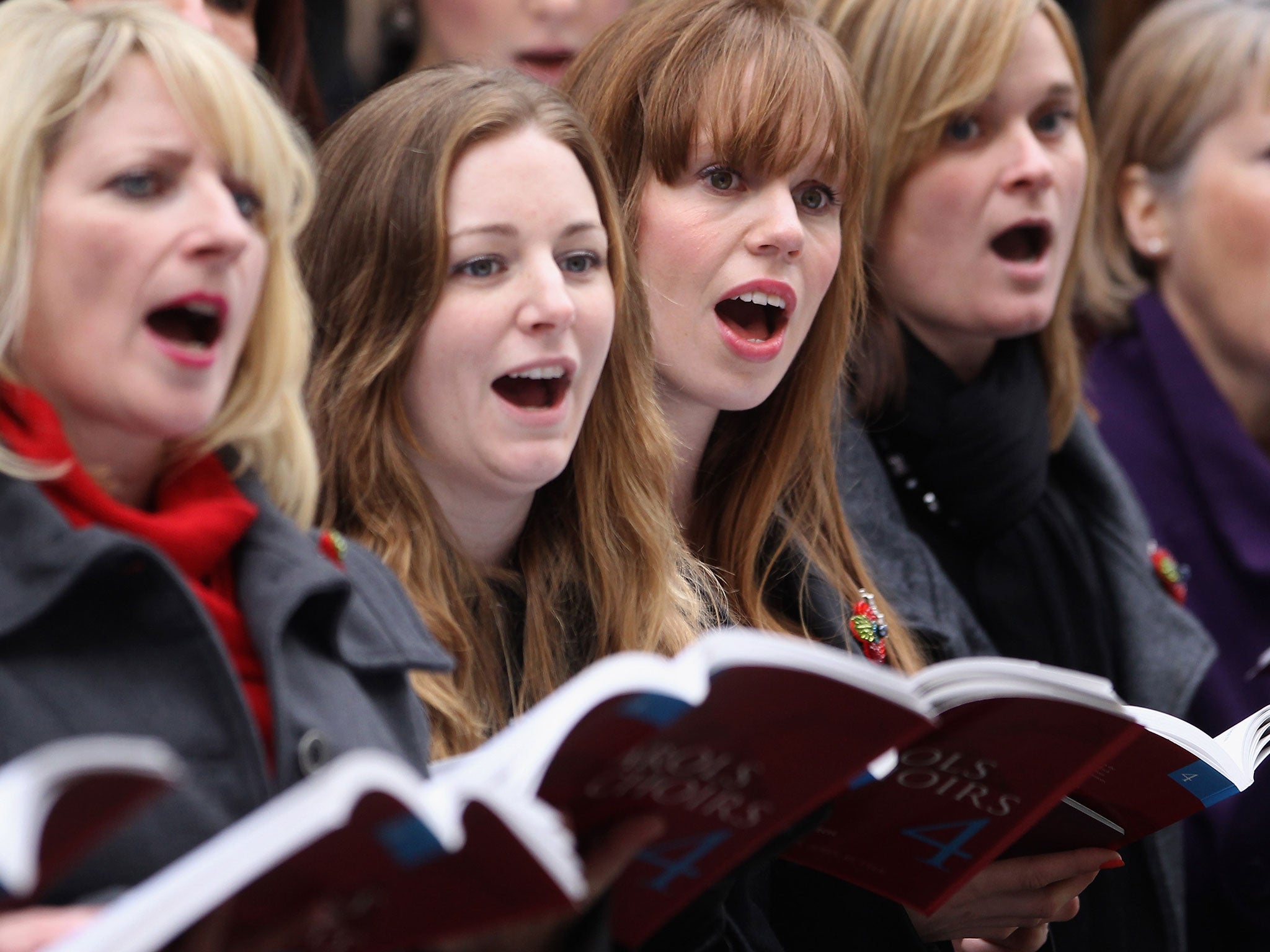Singing is a 'bonding behaviour' letting adults make friends more easily, Oxford University research finds
Researchers compared singers with adults doing other classes to see how quickly they bonded

Singing acts as a “bonding behaviour” among adults, making it easier for people to make new friends, psychologists at Oxford University have found.
A study published in the Royal Society’s Open Science journal watched how strangers’ relationships progressed over several months of creative writing, craft and singing classes.
Out of seven courses, the singers became closer much quicker – a result attributed the ice-breaking “power of a good sing-song”.
Dr Eiluned Pearce, who led the research at Oxford’s Department of Experimental Psychology, said: “One of the key differences between humans and other primates is that we can exist in much larger social groups.

“Singing is found in all human societies and can be performed to some extent by the vast majority of people.
“It’s been suggested that singing is one of the ways in which we build social cohesion when there isn’t enough time to establish one-to-one connections between everyone in a group.
“We wanted to explore whether there was something special about singing as a bonding behaviour or whether any group activity would build bonds between members.”
To test the theory, researchers monitored seven weekly courses run by the Workers' Educational Association (WEA) - four in singing, two in crafts and one in creative writing.
Attendees filled out surveys before and after sessions in the first and third months of the course, as well as at the end after seven months, to rate how they felt about their classmates.
Enjoy unlimited access to 100 million ad-free songs and podcasts with Amazon Music
Sign up now for a 30-day free trial. Terms apply.
ADVERTISEMENT. If you sign up to this service we will earn commission. This revenue helps to fund journalism across The Independent.
Enjoy unlimited access to 100 million ad-free songs and podcasts with Amazon Music
Sign up now for a 30-day free trial. Terms apply.
ADVERTISEMENT. If you sign up to this service we will earn commission. This revenue helps to fund journalism across The Independent.
“The difference between the singers and the non-singers appeared right at the start of the study,” Dr Pearce said.
“In the first month, people in the singing classes became much closer to each other over the course of a single class than those in the other classes did.
“Singing broke the ice better than the other activities, getting the group together faster by giving a boost to how close classmates felt towards each other right at the start of the course.”
But as time went on, the difference evened out and at the end of the courses, all the classes were reporting similar levels of closeness.
Dr Pearce said the non-singing groups became friends by talking during lessons and breaks, but the study provided evidence that singing was a “powerful means of bonding a whole group simultaneously”, adding: “Really close relationships still depend on interactions between individuals or much smaller groups, but this study shows singing can kick start the bonding process.”
The research is part of a series of studies looking at how music strengthens relationships.
The co-author, Dr Jacques Launay, said music-making had been an important part of all human cultures throughout history and “evolved to serve some purpose”.
“Evidence suggests that the really special thing that music does for us is encourage social bonding between whole groups of people playing and dancing together,” he added.
Join our commenting forum
Join thought-provoking conversations, follow other Independent readers and see their replies
Comments
Bookmark popover
Removed from bookmarks